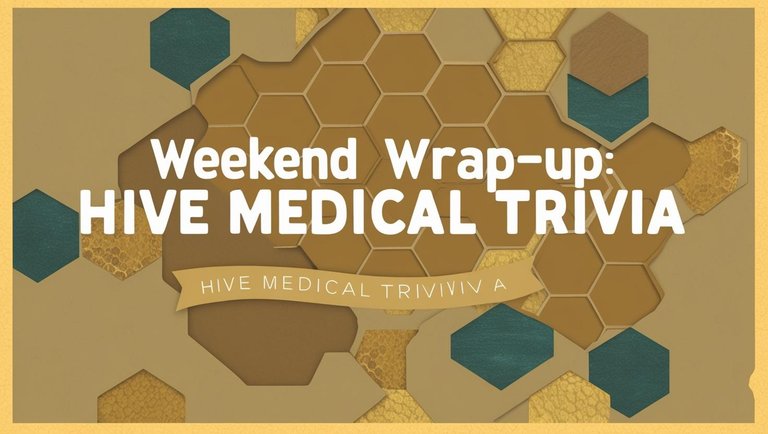
It has been one hell of a week for me, but I tried to make sure that the medical trivia kept coming daily. And now it is time to wrap it up with the answers to the questions and the explanations.
Each question has a straightforward answer, and I’ll explain why it’s correct while also clearing up any confusion about the other options.
Friday:
Your sibling often complains of heartburn after meals and says their throat feels irritated. What simple advice could help?
Correct Answer: A) Avoid lying down immediately after eating
When you lie down soon after eating, gravity can’t help keep stomach acid where it belongs—in your stomach. This can cause acid to move up into your esophagus, leading to that uncomfortable burning sensation. Staying upright for at least 2-3 hours after meals can make a huge difference.
Why not the others?
- B) Eat more spicy food: Spicy foods can worsen heartburn by irritating the esophagus and increasing stomach acid production.
- C) Drink a lot of cold water during meals: Drinking excessive water, especially during meals, can dilute digestive juices, potentially disrupting digestion and causing bloating, which may worsen heartburn.
- D) Skip meals entirely: Skipping meals can lead to overeating later, which increases the risk of heartburn. Plus, it’s not a healthy habit overall.
Thursday:
You see someone choking at a restaurant. They can’t speak and are signaling for help. What is the best first action?
Correct Answer: C) Perform the Heimlich maneuver
When someone is choking, their airway is blocked, and they can’t speak or breathe. The Heimlich maneuver (abdominal thrusts) is designed to dislodge the object causing the blockage. Acting quickly is crucial!
Why not the others?
- A) Give them water to drink: If the airway is blocked, adding water won’t help and could make things worse.
- B) Call for help and wait for paramedics: While it’s important to call for help, waiting passively wastes precious time when immediate action could save a life.
- D) Tell them to raise their arms: Raising arms won’t clear a blocked airway. It’s not a medically recognized method for choking.
Wednesday:
What is the purpose of the Glasgow Coma Scale (GCS)?
Correct Answer: C) To measure the level of consciousness
The Glasgow Coma Scale is a tool used by healthcare providers to assess a person’s level of consciousness after a brain injury. It measures three aspects: eye opening, verbal response, and motor response, giving a score between 3 and 15.
Why not the others?
- A) To assess pain levels in patients: While pain responses might be part of assessing motor function, GCS isn’t specifically for pain measurement.
- B) To evaluate liver function: Liver function tests involve blood work, not GCS.
- D) To calculate BMI: BMI (Body Mass Index) assesses body fat based on weight and height, unrelated to consciousness.
Tuesday:
Which of the following vaccines is given to prevent tuberculosis (TB)?
Correct Answer: A) BCG vaccine
The Bacillus Calmette-Guerin (BCG) vaccine is used to protect against TB, particularly severe forms in children. It’s a key part of childhood immunization programs in many countries.
Why not the others?
- B) DTP vaccine: Protects against diphtheria, tetanus, and pertussis (whooping cough), not TB.
- C) MMR vaccine: Protects against measles, mumps, and rubella, not TB.
- D) Hepatitis B vaccine: Prevents hepatitis B infection, unrelated to TB.
Monday:
A 50-year-old woman complains of fatigue, constipation, weight gain, and dry skin. What is the most likely diagnosis?
Correct Answer: B) Hypothyroidism
Hypothyroidism, or an underactive thyroid, slows down the body’s metabolism. Common symptoms include fatigue, weight gain, constipation, and dry skin, among others.
Why not the others?
- A) Hyperthyroidism: This is the opposite condition, where the thyroid is overactive. Symptoms include weight loss, rapid heartbeat, and increased energy—the opposite of what’s described here.
- C) Diabetes: While diabetes can cause fatigue, it’s less likely to explain the full set of symptoms, especially weight gain and dry skin.
- D) Vitamin D deficiency: This can cause fatigue and muscle weakness but doesn’t typically cause weight gain or constipation.
A big thank you to everyone who participated this week. Thank you for your curiosity and thank you for your interest in medicine.
See you all next week for another round of interesting trivias.
thumbnail made with canva
Thanks for the update
Hi.
I didn't see the post about winners...
Am I not one of them this week? 😂😅😅